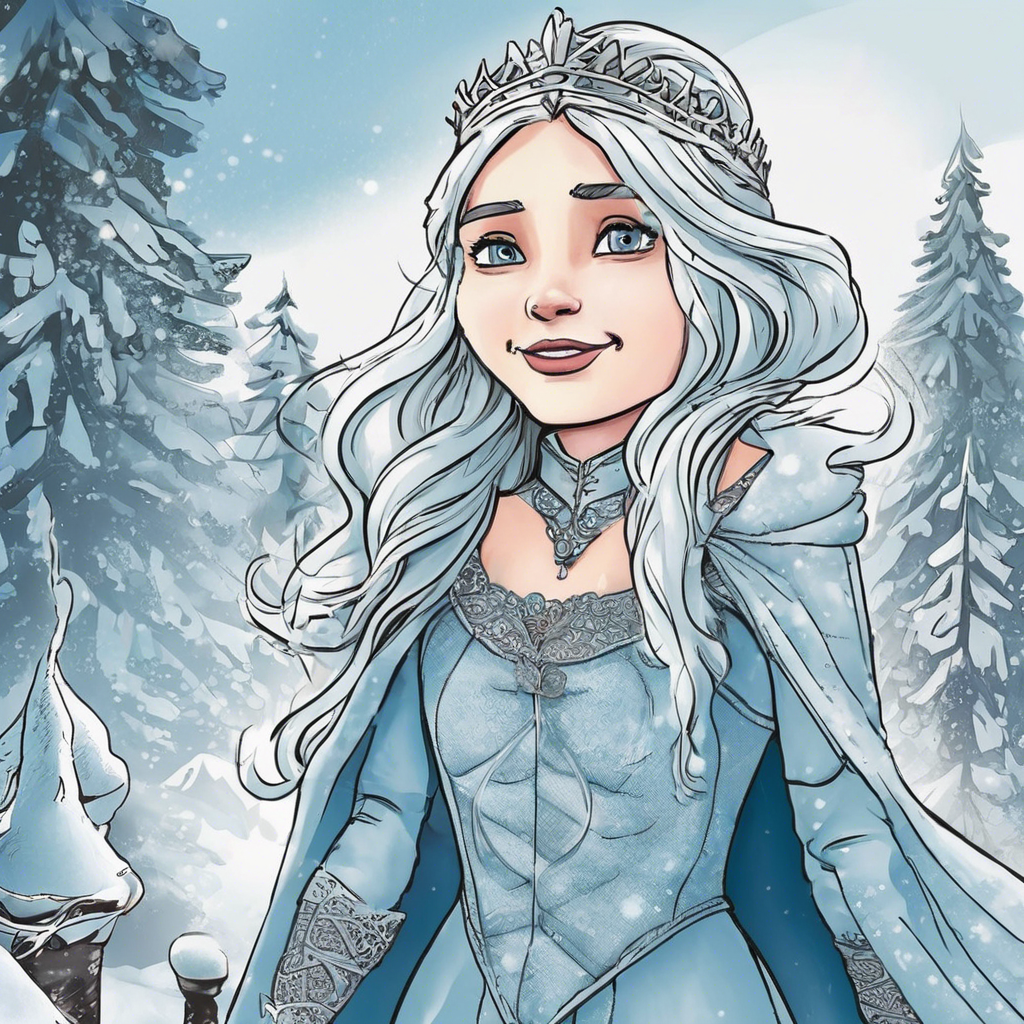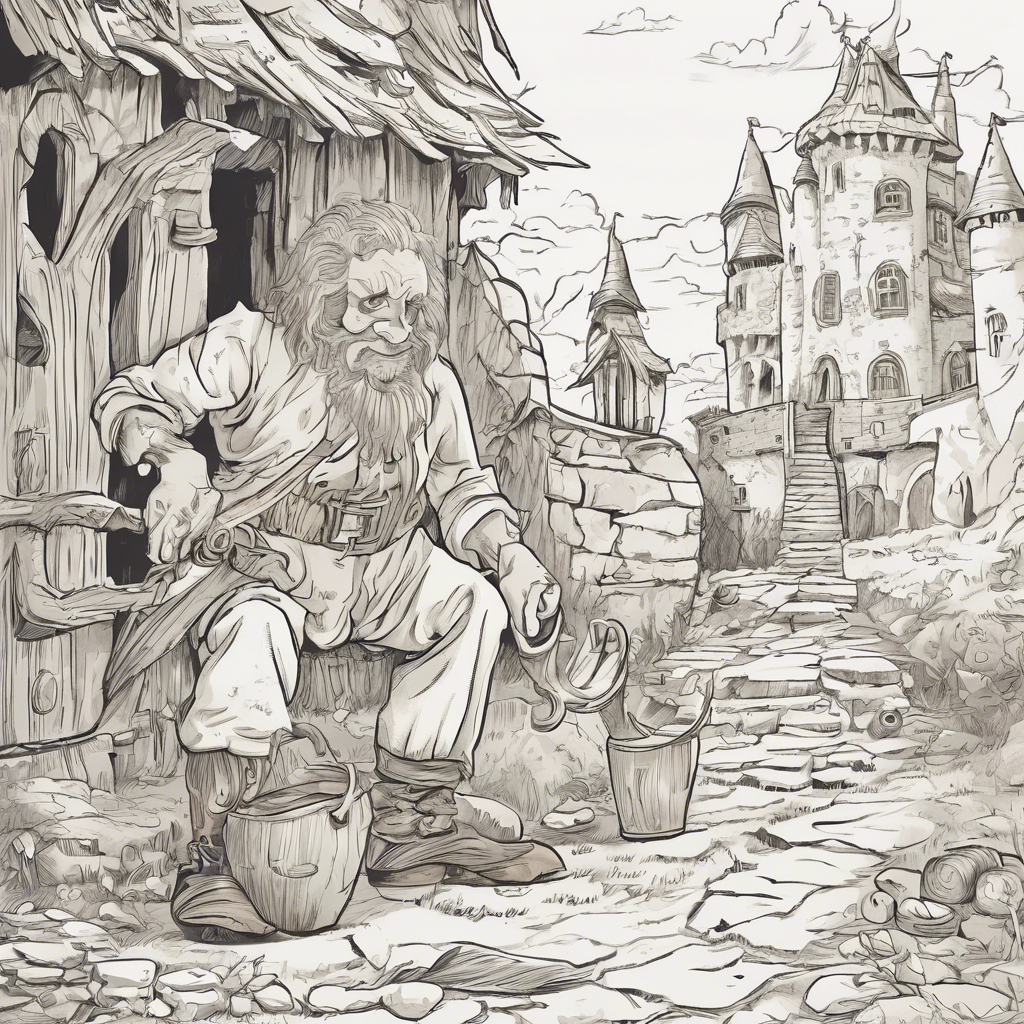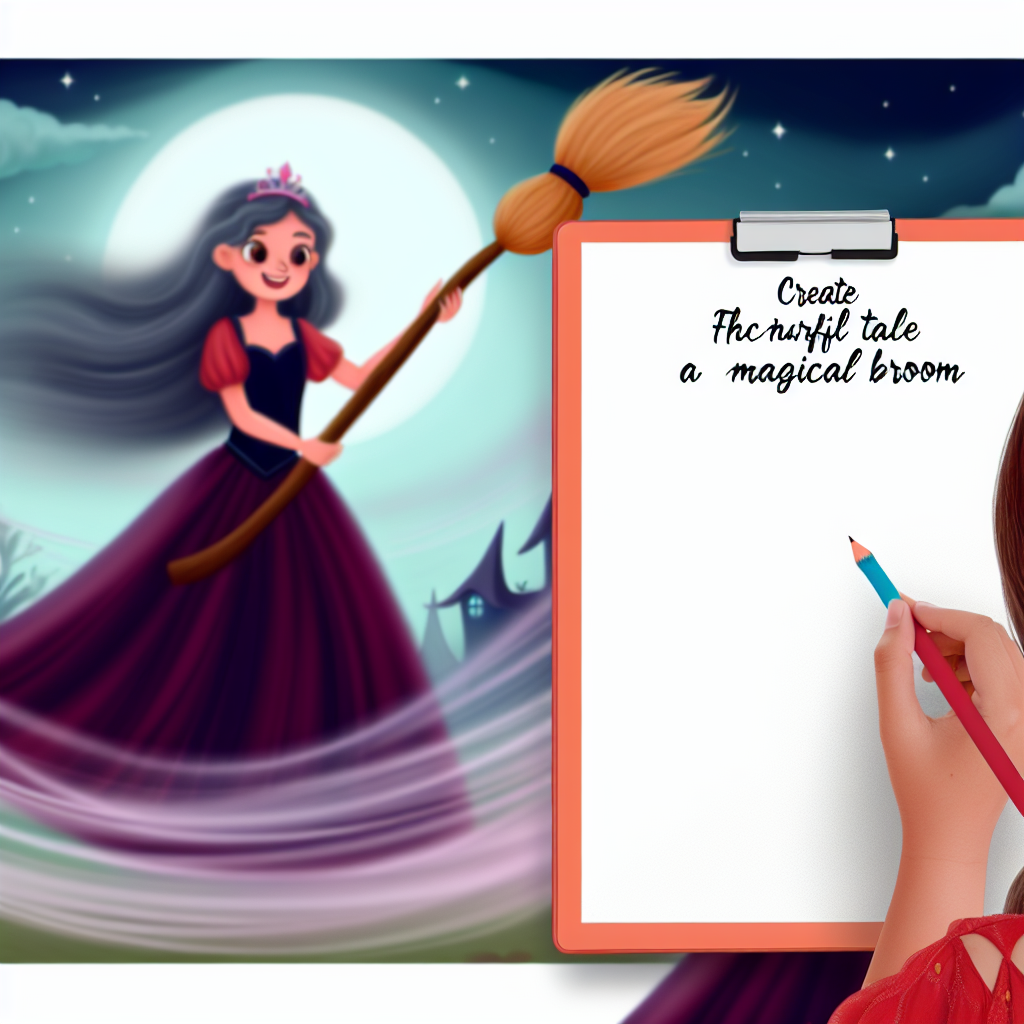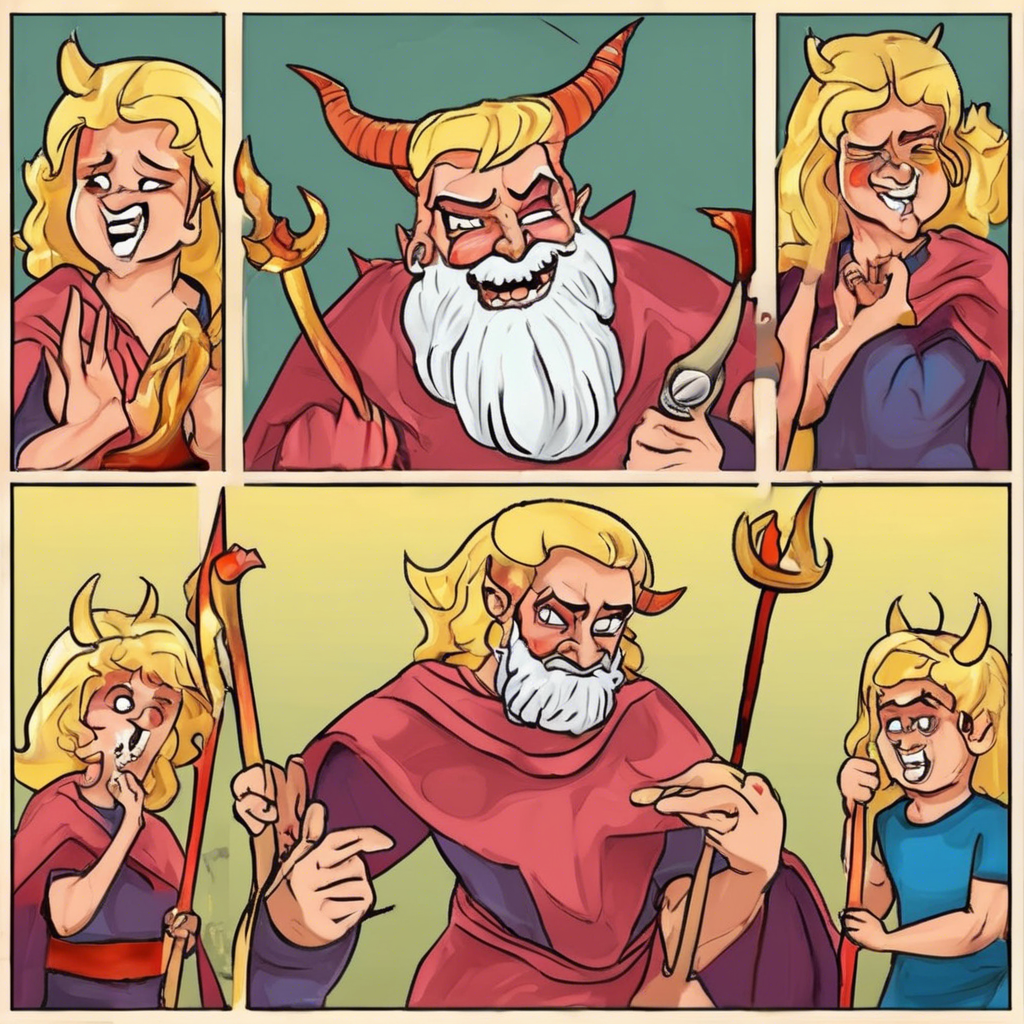SECOND STORY:
A LITTLE BOY AND A LITTLE GIRL
In a large town full of houses and people there is not room for everybody to have even a little garden. Most people are obliged to content themselves with a few flowers in flowerpots.
In one of these large towns lived two poor children who had a garden somewhat larger and better than a few flowerpots. They were not brother and sister, but they loved each other almost as much as if they had been. Their parents lived opposite each other in two garrets where the roofs of neighboring houses nearly joined each other, and the water pipe ran between them. In each roof was a little window, so that any one could step across the gutter from one window to the other.
The parents of each of these children had a large wooden box in which they cultivated kitchen vegetables for their own use, and in each box was a little rosebush which grew luxuriantly.
After a while the parents decided to place these two boxes across the water pipe, so that they reached from one window to the other and looked like two banks of flowers. Sweet peas drooped over the boxes, and the rosebushes shot forth long branches, which were trained about the windows and clustered together almost like a triumphal arch of leaves and flowers.
The boxes were very high, and the children knew they must not climb upon them without permission; but they often had leave to step out and sit upon their little stools under the rosebushes or play quietly together.
In winter all this pleasure came to an end, for the windows were sometimes quite frozen over. But they would warm copper pennies on the stove and hold the warm pennies against the frozen pane; then there would soon be a little round hole through which they could peep, and the soft, bright eyes of the little boy and girl would sparkle through the hole at each window as they looked at each other. Their names were Kay and Gerda. In summer they could be together with one jump from the window, but in winter they had to go up and down the long staircase and out through the snow before they could meet.
“See! there are the white bees swarming,” said Kay’s old grandmother one day when it was snowing.
“Have they a queen bee?” asked the little boy, for he knew that the real bees always had a queen.
“To be sure they have,” said the grandmother. “She is flying there where the swarm is thickest. She is the largest of them all and never remains on the earth, but flies up to the dark clouds. Often at midnight she flies through the streets of the town and breathes with her frosty breath upon the windows; then the ice freezes on the panes into wonderful forms that look like flowers and castles.”
“Yes, I have seen them,” said both the children; and they knew it must be true.
“Can the Snow Queen come in here?” asked the little girl.
“Only let her come,” said the boy. “I’ll put her on the warm stove, and then she’ll melt.”
The grandmother smoothed his hair and told him more stories.
That same evening when little Kay was at home, half undressed, he climbed upon a chair by the window and peeped out through the little round hole. A few flakes of snow were falling, and one of them, rather larger than the rest, alighted on the edge of one of the flower boxes. Strange to say, this snowflake grew larger and larger till at last it took the form of a woman dressed in garments of white gauze, which looked like millions of starry snowflakes linked together. She was fair and beautiful, but made of ice—glittering, dazzling ice. Still, she was alive, and her eyes sparkled like bright stars, though there was neither peace nor rest in them. She nodded toward the window and waved her hand. The little boy was frightened and sprang from the chair, and at the same moment it seemed as if a large bird flew by the window.
On the following day there was a clear frost, and very soon came the spring. The sun shone; the young green leaves burst forth; the swallows built their nests; windows were opened, and the children sat once more in the garden on the roof, high above all the other rooms.
How beautifully the roses blossomed this summer! The little girl had learned a hymn in which roses were spoken of. She thought of their own roses, and she sang the hymn to the little boy, and he sang, too:
“Roses bloom and fade away;
The Christ-child shall abide alway.
Blessed are we his face to see
And ever little children be.”
Then the little ones held each other by the hand, and kissed the roses, and looked at the bright sunshine, and spoke to it as if the Christ-child were really there. Those were glorious summer days. How beautiful and fresh it was out among the rosebushes, which seemed as if they would never leave off blooming.
One day Kay and Gerda sat looking at a book of pictures of animals and birds. Just then, as the clock in the church tower struck twelve, Kay said, “Oh, something has struck my heart!” and soon after, “There is certainly something in my eye.”
The little girl put her arm round his neck and looked into his eye, but she could see nothing.
“I believe it is gone,” he said. But it was not gone; it was one of those bits of the looking-glass,—that magic mirror of which we have spoken,—the ugly glass which made everything great and good appear small and ugly, while all that was wicked and bad became more visible, and every little fault could be plainly seen. Poor little Kay had also received a small splinter in his heart, which very quickly turned to a lump of ice. He felt no more pain, but the glass was there still. “Why do you cry?” said he at last. “It makes you look ugly. There is nothing the matter with me now. Oh, fie!” he cried suddenly; “that rose is worm-eaten, and this one is quite crooked. After all, they are ugly roses, just like the box in which they stand.” And then he kicked the boxes with his foot and pulled off the two roses.
“Why, Kay, what are you doing?” cried the little girl; and then when he saw how grieved she was he tore off another rose and jumped through his own window, away from sweet little Gerda.
When afterward she brought out the picture book he said, “It is only fit for babies in long clothes,” and when grandmother told stories he would interrupt her with “but”; or sometimes when he could manage it he would get behind her chair, put on a pair of spectacles, and imitate her very cleverly to make the people laugh. By and by he began to mimic the speech and gait of persons in the street. All that was peculiar or disagreeable in a person he would imitate directly, and people said, “That boy will be very clever; he has a remarkable genius.” But it was the piece of glass in his eye and the coldness in his heart that made him act like this. He would even tease little Gerda, who loved him with all her heart.
His games too were quite different; they were not so childlike. One winter’s day, when it snowed, he brought out a burning glass, then, holding out the skirt of his blue coat, let the snowflakes fall upon it.
“Look in this glass, Gerda,” said he, and she saw how every flake of snow was magnified and looked like a beautiful flower or a glittering star.
“Is it not clever,” said Kay, “and much more interesting than looking at real flowers? There is not a single fault in it. The snowflakes are quite perfect till they begin to melt.”
Soon after, Kay made his appearance in large, thick gloves and with his sledge at his back. He called upstairs to Gerda, “I’ve got leave to go into the great square, where the other boys play and ride.” And away he went.
In the great square the boldest among the boys would often tie their sledges to the wagons of the country people and so get a ride. This was capital. But while they were all amusing themselves, and Kay with them, a great sledge came by; it was painted white, and in it sat some one wrapped in a rough white fur and wearing a white cap. The sledge drove twice round the square, and Kay fastened his own little sledge to it, so that when it went away he went with it. It went faster and faster right through the next street, and the person who drove turned round and nodded pleasantly to Kay as if they were well acquainted with each other; but whenever Kay wished to loosen his little sledge the driver turned and nodded as if to signify that he was to stay, so Kay sat still, and they drove out through the town gate.
Then the snow began to fall so heavily that the little boy could not see a hand’s breadth before him, but still they drove on. He suddenly loosened the cord so that the large sledge might go on without him, but it was of no use; his little carriage held fast, and away they went like the wind. Then he called out loudly, but nobody heard him, while the snow beat upon him, and the sledge flew onward. Every now and then it gave a jump, as if they were going over hedges and ditches. The boy was frightened and tried to say a prayer, but he could remember nothing but the multiplication table.
The snowflakes became larger and larger, till they appeared like great white birds. All at once they sprang on one side, the great sledge stopped, and the person who had driven it rose up. The fur and the cap, which were made entirely of snow, fell off, and he saw a lady, tall and white; it was the Snow Queen.
“We have driven well,” said she; “but why do you tremble so? Here, creep into my warm fur.” Then she seated him beside her in the sledge, and as she wrapped the fur about him, he felt as if he were sinking into a snowdrift.
“Are you still cold?” she asked, as she kissed him on the forehead. The kiss was colder than ice; it went quite through to his heart, which was almost a lump of ice already. He felt as if he were going to die, but only for a moment—he soon seemed quite well and did not notice the cold all around him.
“My sledge! Don’t forget my sledge,” was his first thought, and then he looked and saw that it was bound fast to one of the white birds which flew behind him. The Snow Queen kissed little Kay again, and by this time he had forgotten little Gerda, his grandmother, and all at home.
“Now you must have no more kisses,” she said, “or I should kiss you to death.”
Kay looked at her. She was so beautiful, he could not imagine a more lovely face; she did not now seem to be made of ice as when he had seen her through his window and she had nodded to him.
In his eyes she was perfect, and he did not feel at all afraid. He told her he could do mental arithmetic as far as fractions, and that he knew the number of square miles and the number of inhabitants in the country. She smiled, and it occurred to him that she thought he did not yet know so very much.
He looked around the vast expanse as she flew higher and higher with him upon a black cloud, while the storm blew and howled as if it were singing songs of olden time. They flew over woods and lakes, over sea and land; below them roared the wild wind; wolves howled, and the snow crackled; over them flew the black, screaming crows, and above all shone the moon, clear and bright—and so Kay passed through the long, long winter’s night, and by day he slept at the feet of the Snow Queen.











